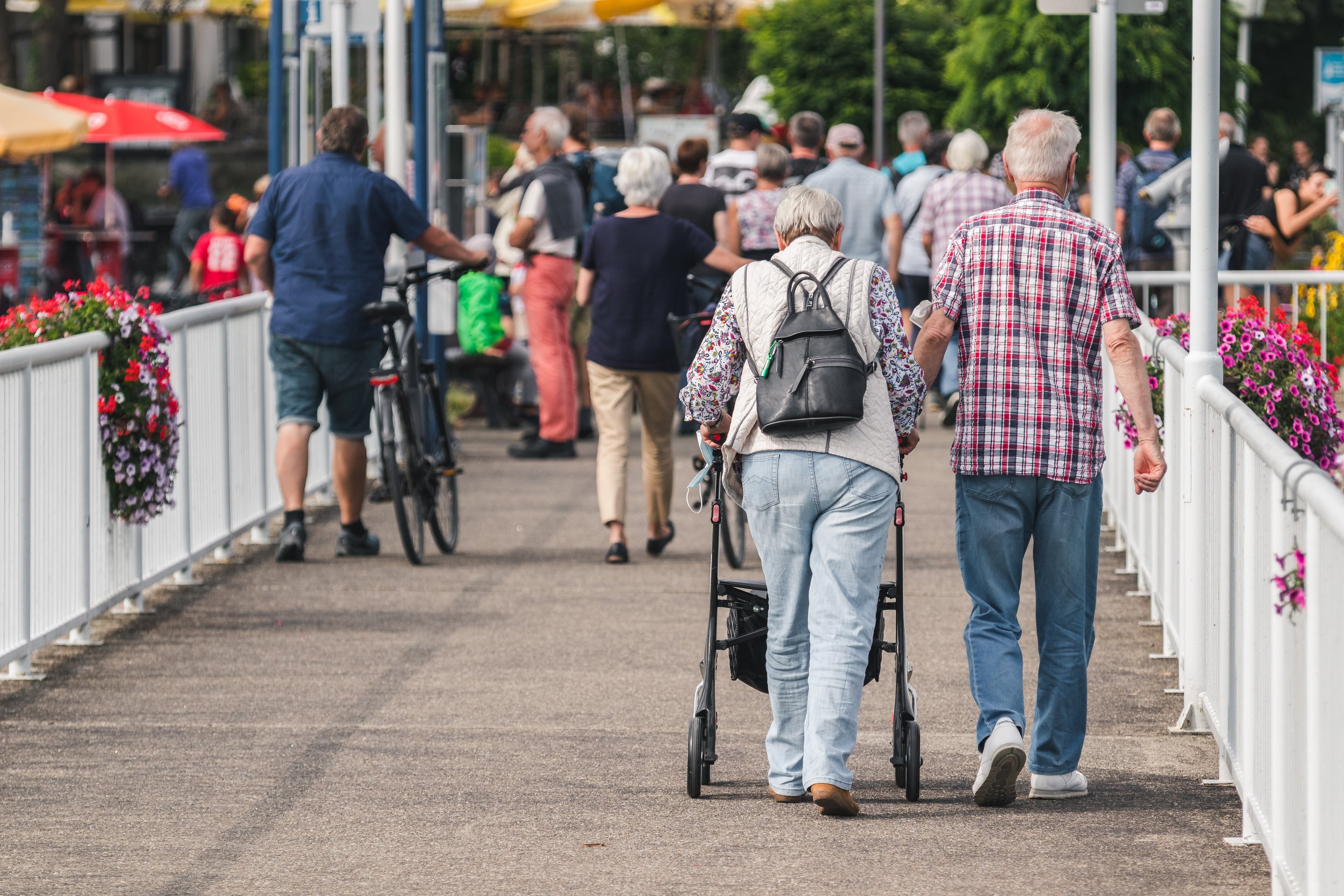Summer Safety for Seniors
Family Care articles are not a substitute for medical or legal advice from a licensed professional.
As things start heating up again, it’s important to review summer safety rules for caregivers and seniors. Older Americans are at an increased risk of heat-related illnesses. To keep yourself cool, or protect a loved one, take a look at the tips below.
Make Sure the Air Conditioning is On
As people age, they lose the ability to regulate their body temperature. Especially for seniors with dementia, they may lose the ability to “feel” hot, even if their surroundings are reaching dangerous temperature levels. Many seniors are used to turning off the air conditioning as a tried-and-true way to save money. But at an advanced age, this can have severe consequences. If the temperature is climbing outside, make sure you and your loved ones have their homes set to a reasonable temperature. When it’s very hot outside, a fan is not a suitable substitute for air conditioning.
If you do not have access to an air conditioning unit, many cities have “heat emergency” plans that involve cooling stations and other resources. These can be found on local news or online during heat waves. Even spending some time at the library, the grocery store, or a friend’s house are reasonable alternatives if the senior’s home cannot be cooled reliably.
Limit Outdoor Activity During Peak Hours
The weather is hottest between early afternoon and 3 PM, when the sun is at its peak. Try to spend time outside in the early morning or late afternoon, when things are a bit cooler.
There are many ways to cut back on time outside. Some companies offer affordable, or free, yard work services for seniors, which can be found in a list on programsforelderly.com. If you don’t live in one of these cities, there may be similar services in your area. A medical social worker or other home healthcare provider may be able to connect you with community resources. Food delivery and errands services can also eliminate some chores that would bring a senior outside during hot months.
If You Have to Be in the Sun, Take Precautions
This includes sunscreen, adequate hydration, and frequent breaks from physical activity. Learn more about UV and sun safety in our recent post.
Wear Appropriate Clothing
Wear lightweight, breathable fabrics and short sleeves whenever possible. Some seniors have difficulty selecting appropriate clothing for the weather or time of year. Storing inappropriate clothes can help them make a good choice out of the options available to them. When the weather turns cold again, winter-weather clothes can be brought back out, and summer clothes put away.
Know the Signs of Heat Exhaustion
Symptoms include:
sweating,
looking pale,
feeling cold or clammy to the touch,
dizziness, headache, tiredness, or weakness, and
fast pulse.
Heat exhaustion symptoms are typically treatable with rest and rehydration in a cool area. To help decrease your internal temperature, apply a cool, wet cloth to your wrists, neck, armpits, and groin. If symptoms persist or worsen, a doctor can help prevent a more serious condition from developing.
Summer heat safety is crucial to keep seniors healthy. Knowing the preventative steps and warning signs of serious problems can ensure everyone stays safe and cool throughout the season.

